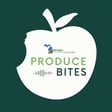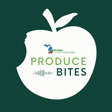
The Ag Water Rule: What We Know and Don't Know
Phil Tocco, Emily Hollingsworth, and Morgan Anderson, members of the Michigan On-Farm Produce Safety team, recently met up at the Northwest Orchard and Vineyard Show to discuss what growers need to know about the Agricultural Water Rule. In this episode, they provide an overview of the Ag Water Rule, and discuss what is currently known and unknown about the proposed rule.
Funding for this podcast was made possible in part by the Food and Drug Administration through grant PAR-16-137. The views expressed in the posted materials do not necessarily reflect the official policies of the Department of Health and Human Services, nor does any mention of trade names, commercial practices or organization imply endorsement by the United States Government.

